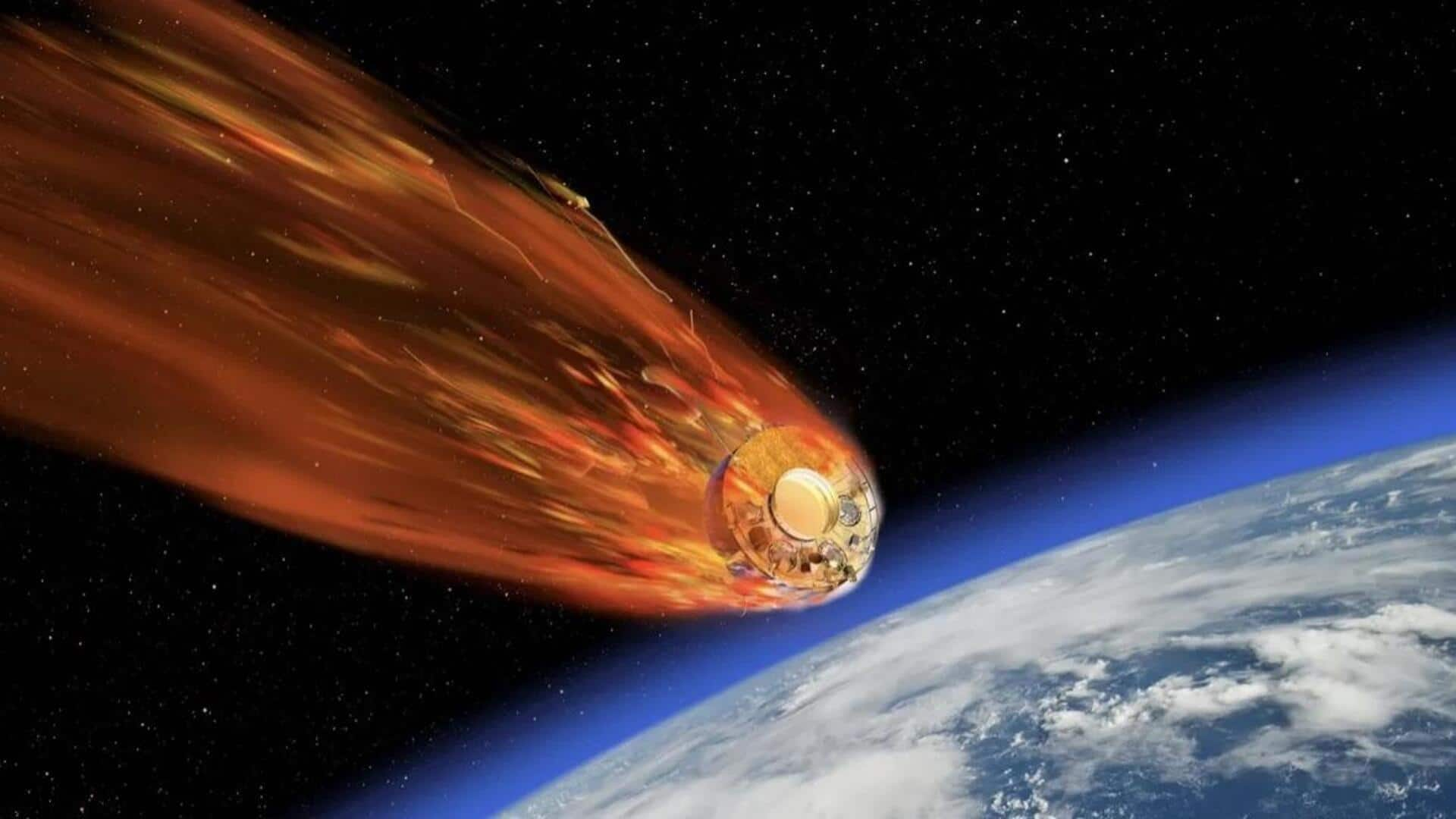
500kg spacecraft is crashing back to Earth—Should you be worried?
What's the story
A vintage Soviet spacecraft, Kosmos 482, is expected to make an uncontrolled re-entry into the Earth's atmosphere this weekend. The Aerospace Corporation's prediction map estimates that the event will take place at around 05:54 UTC on Saturday (11:24am IST). The spacecraft was originally launched in 1972 as part of a series of missions to explore Venus.
Re-entry
Kosmos 482's journey and potential impact
The spacecraft was supposed to reach Venus but malfunctioned during launch, failing to leave Earth's orbit. While most parts of the spacecraft fell back to Earth within a decade, experts believe the landing capsule has been in a highly elliptical orbit for 53 years and is now gradually descending. The re-entry speed of this capsule is estimated at around 242km/h, if it remains intact.
Impact area
Uncertain landing zone for Kosmos 482
The potential landing zone for Kosmos 482 covers a huge area between latitude 51.7 degrees north and south. This covers areas like the US, South America, Africa, Australia, most of Europe and Asia below the Arctic Circle. However, since most of Earth is covered by water, scientists believe that the risk to humans is considerably low.
Risk assessment
Experts downplay risks of Kosmos 482's re-entry
Dutch scientist Marco Langbroek predicts the failed spacecraft will re-enter around May 10 (Saturday). He stresses that although there is some risk involved, it shouldn't be a cause for major concern. "The risk is similar to that of a random meteorite fall... You run a bigger risk of getting hit by lightning in your lifetime," he stated.
Survival prospects
Kosmos 482's design and potential for survival
The spacecraft was designed to survive a descent through Venus's thick carbon dioxide atmosphere, making it more likely to survive re-entry into Earth's atmosphere. But experts wonder if the parachute system would even work after so many years in space. Jonathan McDowell, an astronomer at Harvard & Smithsonian Center for Astrophysics, said it could either burn up during atmospheric entry or return intact as a half-ton (500kg) metal object.
Aircraft risk
Space debris poses increasing threat to aircraft
A recent study published in Scientific Reports has warned about the growing problem of space debris impacting planes. The researchers found that high-density areas near major airports have an 0.8% chance per year of being affected by an uncontrolled rocket re-entry. However, this risk rose to 26% in larger but still busy airspace regions.